Search
Did you mean: Silla?
Search Results

Article
The Armour of an English Medieval Knight
English medieval knights wore metal armour of iron or steel to protect themselves from archers and the long swords of opponents. From the 9th century CE, chain mail suits gave protection and freedom of movement until solid plate armour became...
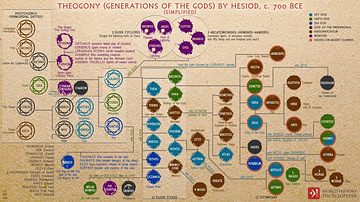
Definition
Hesiod
Hesiod (c. 700 BCE) in conjunction with Homer, is one of those almost legendary early Greek Epic poets. His works are not of comparable length to Homer's. Hesiod's poems are not epic because of their length, but because of their language...

Definition
Hoplite - The Key Infantry Soldier of Ancient Greece
A hoplite (from ta hopla meaning tool or equipment) was the most common type of heavily armed foot-soldier in ancient Greece from the 7th to 4th centuries BCE, and most ordinary citizens of Greek city-states with sufficient means were expected...
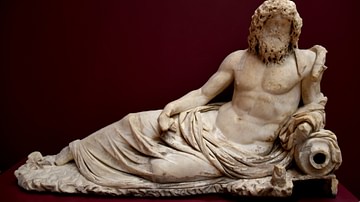
Definition
Oceanus
Oceanus (also Okeanos) was the eldest of the Titans and a son of Uranus (Heaven) and Gaia (Earth) in Greek mythology. He was the god and personification of the freshwater river Oceanus, which was thought to encircle the earth and was said...
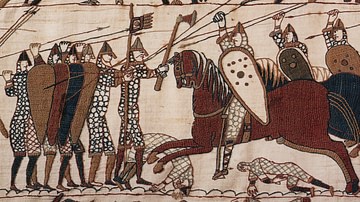
Definition
Battle of Hastings
The Battle of Hastings in south-east England on 14 October 1066 saw the defeat of the Anglo-Saxon king Harold II (r. Jan-Oct 1066) by the invading Norman army led by William, Duke of Normandy (reigned from 1035). After a day of heavy fighting...
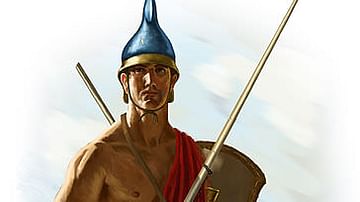
Definition
Peltast
A peltast was a type of Greek infantryman who was usually armed with a javelin and who carried a light shield. Originating from Thrace, the peltast was a common sight in Greek warfare during the Classical period and especially following the...

Article
Athena Parthenos by Phidias
The magnificent temple on the Acropolis of Athens, known as the Parthenon, was built between 447 and 432 BCE in the Golden Age of Pericles, and it was dedicated to the city's patron deity Athena. The temple was constructed to house the new...

Definition
Roman Gladiator
A Roman gladiator was an ancient professional fighter who usually specialised with particular weapons and types of armour. They fought before the public in hugely popular organised games held in large purpose-built arenas throughout the Roman...

Definition
Battle of Marathon
The Battle on the plain of Marathon in September 490 BCE between Greeks and the invading forces of Persian king Darius I (r. 522-486 BCE) was a victory that would go down in folklore as the moment the Greek city-states showed the world their...
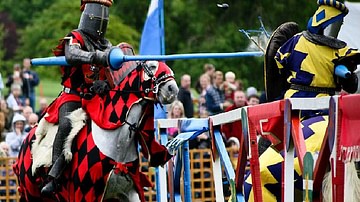
Definition
Medieval Tournament
The medieval tournament was a forum for European knights where they could practise and show off their military skills in activities such as jousting or the mêlée, indulge in a bit of pageantry, display their chivalrous qualities and win both...